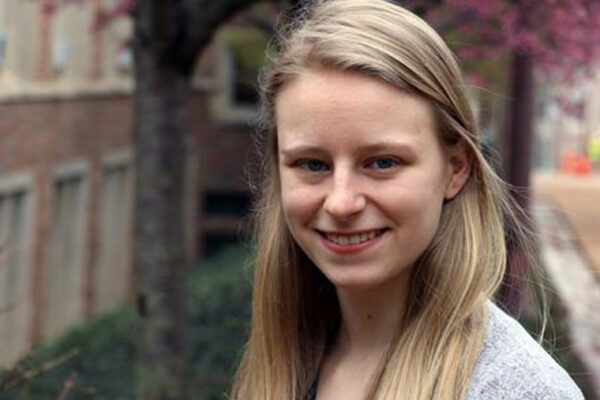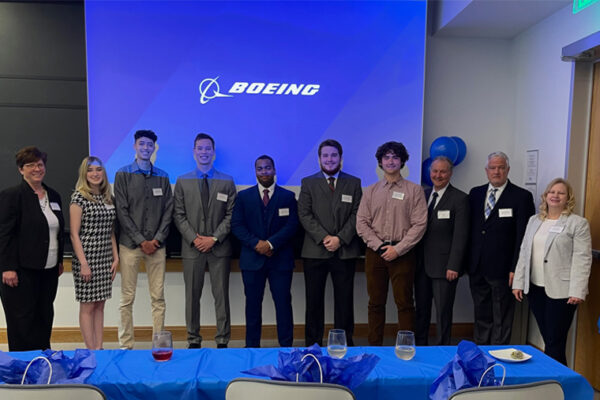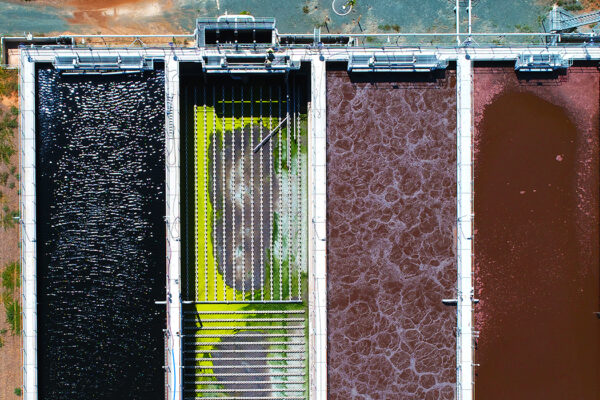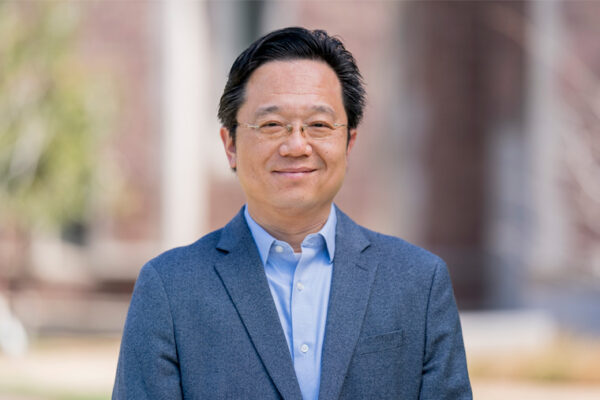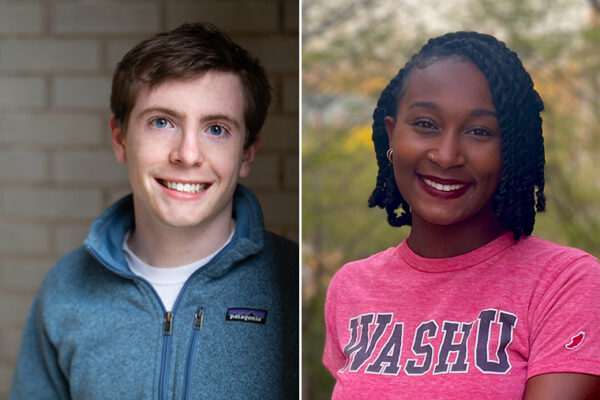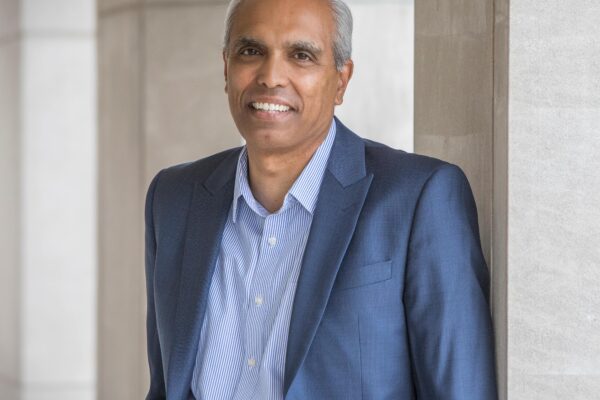Walker wins Quantrano Prize, other honors
McKelvey School of Engineering undergraduate student Caitlind Walker has received several prizes, including the 2022 Ralph S. Quatrano Prize.
Engineering students chosen for Boeing leadership program
Seven students from the McKelvey School of Engineering have been selected for paid internships as part of Boeing Co.’s new Accelerated Leadership Program.
When more complex is simpler
A new modeling framework proposed by physicist Mikhail Tikhonov in Arts & Sciences demonstrates how a more complex microbial ecosystem can be more coarse-grainable, making it potentially easier for scientists to understand, than one with only a few microbes interacting.
Lu wins award for most influential paper in real-time systems
Chenyang Lu, the Fullgraf Professor at the McKelvey School of Engineering at Washington University in St. Louis and a preeminent expert in cyber-physical systems, and his co-authors received the 2021 IEEE Real-Time and Embedded Technology and Applications Symposium (RTAS) Influential Paper Award.
Demographics, not bias, best predict traffic stops
New research from the lab of psychologist Calvin Lai in Arts & Sciences shows that the racial demographics of a county, more than other factors, help predict discrepancies when it comes to who gets pulled over by police.
Astronomers unveil first image of Milky Way’s black hole
Michael Nowak, research professor of physics in Arts & Sciences, is part of the global research team that shared the first image of the supermassive black hole at the center of our own Milky Way galaxy.
New tech can double spectral bandwidth in some 5G systems
Using the properties of a unique class of materials, researchers, including Aravind Nagulu at the McKelvey School of Engineering, may have found a way to dramatically increase the bandwidth available for wireless communications.
Undergraduate biologists awarded 2022 Quatrano, Spector prizes
Ethan Lowder, a December 2021 graduate who majored in the biochemistry track of biology in Arts & Sciences, won the Ralph S. Quatrano Prize; Kayla Wallace, a senior majoring in environmental biology with a minor in anthropology in Arts & Sciences, received the Spector Prize.
Nonlethal parasites reduce how much their wild hosts eat, leading to ecosystem effects
Research from the Living Earth Collaborative highlights the cascading consequences of common parasitic infections. Although many of these infections are not lethal, they can still impact health or animal behavior, leading hosts to eat less vegetation. The study led by biologist Amanda Koltz in Arts & Sciences is published in the Proceedings of the National Academy of Sciences.
Pappu lab untangles more IDR secrets
Rohit Pappu’s latest look at intrinsically disordered regions of proteins explains why some sequences behave in different ways. His paper was published in the Proceedings of the National Academy of Sciences.
Older Stories
